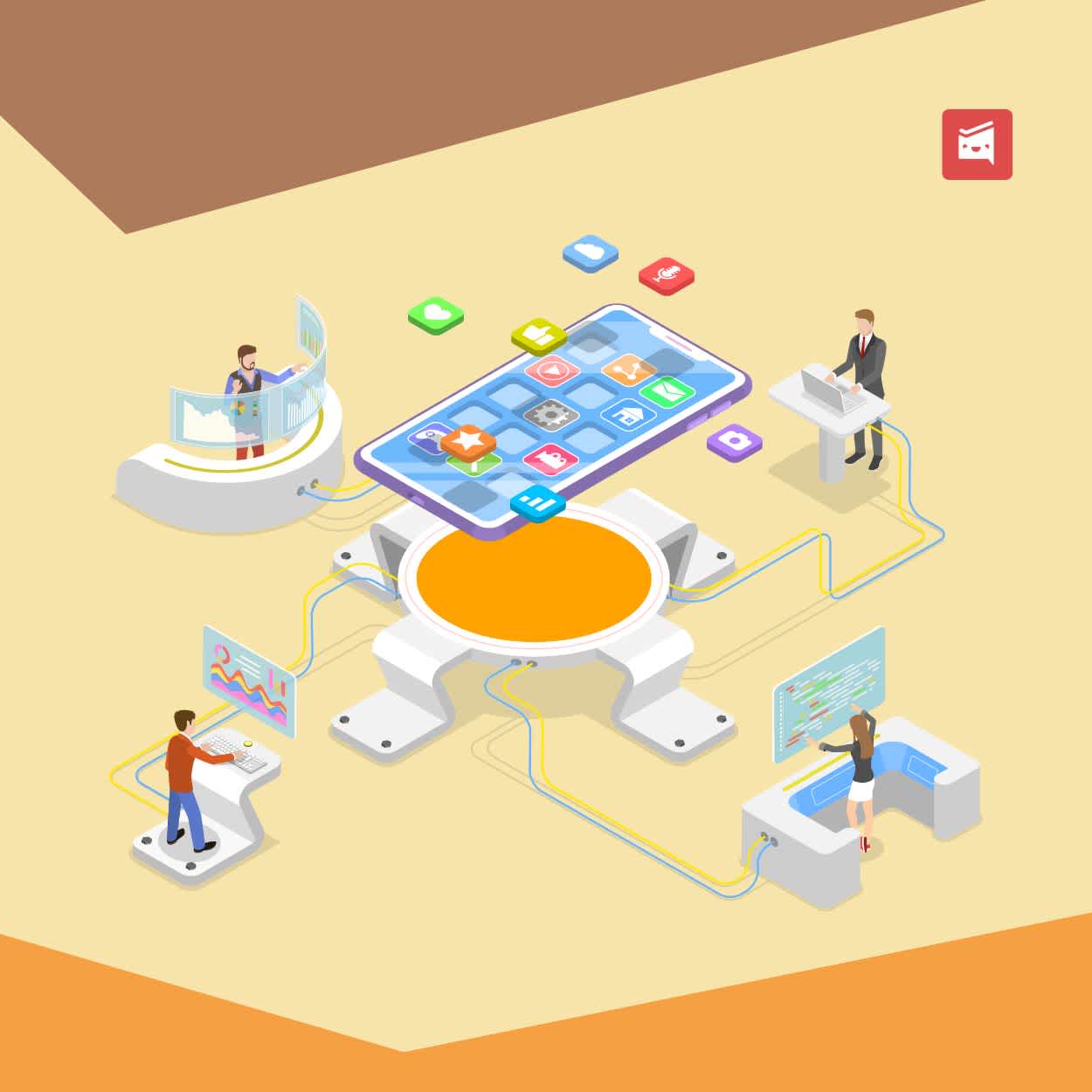Harnessing Innovation: Navigating Mobile App Development Services for Your Business
ByJulian Gette
Workast publisher

Workast publisher
The digital realm is no longer a new frontier; it's the here and now. As the sands of time shift, businesses are quickly recognizing that mobile applications aren't just a trend—they're a necessity. This article will provide a comprehensive overview of mobile app development services and emphasize the criticality of choosing the right service to fuel business growth. Like finding the right key for a lock, selecting the appropriate service can be the linchpin for success.
In today's digital ecosystem, businesses looking to make a mark must be acutely aware of the mobile app development avenues available. The realm of mobile app development is vast and varied, akin to a sprawling metropolis with different neighborhoods, each with its unique flavor.
Custom Mobile App Development Dive deeper into this neighborhood, and you'll find distinct structures that cater to specific needs:
Native App Development: These are the skyscrapers built with bricks unique to each platform. Designed for a specific operating system like iOS or Android, they offer optimized performance and a more fluid user experience. They're tailored, exclusive, and often seen as the gold standard in mobile app development.
Cross-platform App Development: Think of these as bridges connecting different parts of the city. Developed with a universal codebase, these apps have the prowess to run on multiple platforms, offering a broader reach. While they might not be as tailored as native apps, they hold the ace in terms of wider accessibility.
Hybrid App Development: These are the modern co-working spaces where different technologies come together under one roof. Marrying the best of native and web-based applications, hybrid apps strike a balance between performance and versatility.
Mobile App Design The aesthetics and architecture of the city play a crucial role in attracting residents and visitors:
User Interface (UI) Design: This is akin to the city's skyline – the visual appeal, the landmarks, and the structures that catch your eye. A well-crafted UI design ensures that the app is not just attractive but also intuitive, leading users effortlessly through their journey.
User Experience (UX) Design: Go beyond the skyline, and you'll find the city's infrastructure – the roads, the utilities, the amenities. UX design ensures that users don't just visit the app but love living in it, ensuring smooth navigation, user-friendly features, and a memorable experience.
Mobile App Testing and Quality Assurance No city thrives without regular maintenance and checks:
Functional Testing: Ensuring that every facility, from elevators to power grids, functions as intended without any glitches.
Performance Testing: Making sure that the city can handle peak hours, festivals, and influxes without breaking down.
Security Testing: Setting up safeguards, security patrols, and firewalls to protect against external threats and ensure the safety of its inhabitants.
In essence, understanding the diverse landscape of mobile app development services is paramount for any business aiming to thrive in this digital age. It's about finding the right neighborhood, the right building, and ensuring its continual upkeep.
Navigating the maze of mobile app development services can be daunting, but with a clear roadmap, the journey becomes straightforward. First and foremost, defining your business objectives and target audience is crucial—it's the compass that sets the direction. Then, researching and comparing service providers is akin to scouting the terrain. Reviewing the portfolio of an agency to develop a mobile app offers glimpses into their craftsmanship, while client testimonials act as signposts of trust and reliability. Lastly, understanding the cost and timeframe is imperative. It's about ensuring you have the resources for the journey and setting realistic expectations. In essence, selecting the right mobile app development service is about preparation, research, and alignment with business goals.
Embarking on the mobile app development journey requires methodical steps, each vital in crafting a successful application:
Discovery and Ideation: This is the brainstorming phase, where ideas are gathered, and a clear vision for the app emerges. It's the foundation upon which everything else is built.
Design and Prototyping: At this stage, abstract ideas morph into tangible designs. Prototypes offer a sneak peek, allowing stakeholders to visualize the final product.
Development and Testing: Here, the app is coded to life. But creation is only half the battle; rigorous testing ensures it's free from glitches and ready for the world.
Deployment and Maintenance: Once perfected, the app is launched for users to enjoy. But like any masterpiece, it requires regular upkeep to ensure it remains in its prime.
In essence, while the process is systematic, it's also dynamic, blending structured steps with creative flair.
The landscape of mobile app development is ever-evolving, continuously shaped by technological advancements and changing user preferences. One of the game-changers has been the integration of Artificial Intelligence and Machine Learning. These technologies breathe life into apps, making them smarter and more responsive to user behaviors.
Another significant trend is the rise of Augmented Reality (AR) and Virtual Reality (VR) applications. These innovations are blurring the lines between the digital and physical realms, offering immersive experiences that were once the stuff of science fiction.
Lastly, the Internet of Things (IoT) Enabled Apps are stitching a more connected world. Devices, big and small, communicate seamlessly, enhancing daily life's convenience and efficiency. The future of mobile app development is undeniably exciting, with endless possibilities on the horizon.
In the intricate ballet of mobile app development, adhering to best practices is the choreography that ensures grace and precision. At the forefront is the commitment to Agile Development Methodologies. This approach, characterized by its flexibility and iterative nature, ensures that the app evolves in tandem with user needs and market dynamics.
Equally pivotal is prioritizing data security and compliance. In an era where data breaches are all too common, ensuring robust security measures safeguards both the user's trust and the brand's reputation.
Lastly, fostering a continuous improvement mindset is vital. It's not enough to merely launch an app; it's about nurturing it, refining it, and ensuring it remains relevant in a rapidly changing digital landscape. In essence, excellence in mobile app development is a journey, not a destination.
The digital tapestry of mobile app development is both intricate and dynamic, offering businesses unparalleled opportunities to engage with their audience. As we've journeyed through its various facets, from development types to emerging trends, the importance of making informed choices becomes evident. Embracing best practices, staying attuned to innovations, and ensuring user-centricity are the cornerstones of success. As businesses chart their course in this realm, a well-crafted mobile app can be their compass, guiding them towards sustained growth and heightened user engagement. In the ever-evolving digital age, it's not just about having an app—it's about having the right one.
